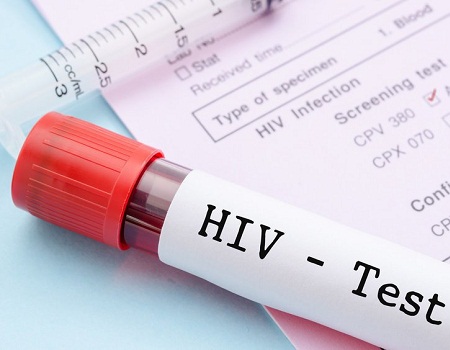

It is not making major news headlines like in the ‘80s, but HIV remains a significant health concern. In 2021, 1.9 million people in Nigeria were living with HIV, and women were the most affected group. So, women should take the virus that causes AIDS more seriously and test regularly.
Understanding one’s HIV status is crucial for the wellbeing of the community as a whole as well as for the individual. Receiving a diagnosis is the first step in selecting healthy living choices, which may include having HIV-negative infants born.

“It is important that women get tested, and we know they are carrying the virus. Of course, there are free and safe interventions that we are going to render to them that will prevent them from transmitting the virus to the children,” said Dr Lanre Abass, the executive secretary of the Oyo State Agency for the Control of AIDS (OYSACA).
Everybody must know their HIV status, regardless of age, sex, or social status. According to Dr Abass, “Without testing, it is impossible to know if one has HIV; it doesn’t show on the face. It will be in the body, attacking a type of white blood cell called CD4, which protects against infections and weakens the immune system.”
Unaware of their condition, HIV-positive women can unintentionally spread the infection to others through sharing needles or having intercourse. It can also be passed on to her offspring.
Nigeria has the largest number of new HIV infections among all countries, with a projected 21,000 cases in 2020; this accounts for 14 percent of the global estimate. Additionally, Nigeria had the second-highest rate of HIV transmission from breastfeeding mothers to their unborn children in 2020, at 15 percent and 10 percent, respectively.
Suppose the mothers take advantage of the free HIV testing offered during pregnancy and the safe interventions designed to stop them from passing the virus to their unborn child, in that case, these incidences of HIV infections can be avoided.
Dr Abass added, “Even if both the woman and the man are HIV-positive, there is a system we take them through that will ensure that the woman’s egg and the man’s sperm will come together during coitus, but this virus is not transmitted.”
However, he declared that individuals should take HIV tests regularly. It can be a self-test at home, similar to a pregnancy test.
“It is free and available in all primary healthcare centres across the state. You lose nothing testing yourself every six months if you are sexually active, to be sure. You are not the only one who determines your HIV status. You may keep yourself safe; how about your partner? You cannot be 100 percent sure,” he said.
Dr Abass said where the woman is HIV positive, it is also in her best interest to adhere to ARV treatment.
“After 25 years of diagnosis, many of our HIV-positive patients are still doing well in their careers because they continue their ARV treatment and practise safety,” he said.
He said it is fairly straightforward: opportunistic infections quickly spread if you stop taking your treatment. Even the common flu will develop into something more complex.
Mrs Alo Olasunmbo, the treasurer of the Oyo State chapter of the Network of People Living with HIV and AIDS in Nigeria (NEPWHAN), said in the community, NGOs like the Damien Foundation have people moving house to house, for instance in Ibadan in Oyo State, looking for pregnant women to ensure they could take a free HIV test and are enrolled in antiretroviral therapy (ART) throughout pregnancy and childbirth to prevent mother-to-child HIV transmission happening.
The Centres for Disease Control and Prevention (CDC) recommends that all people get tested for HIV before they become pregnant and as early as possible during each pregnancy and in the third trimester. The earlier HIV is detected, the sooner HIV medicines can be started.
In Mrs Olasumbo’s opinion, a woman, whether pregnant or not, knowing her HIV status and disclosing this to the healthcare provider would ensure she is not stigmatised but that extra precautions are taken to ensure that she does not end up with a child that is HIV positive.
However, she asked pregnant women who are HIV positive to desist from running to deliver with traditional birth attendants and forego antenatal care because they were told they tested positive for HIV.
“At the hospital, the health workers will know what to do before and during delivery so that the child does not come down with HIV,” she added.
Mr Seun Onifade, Oyo State coordinator, Civil Society on HIV and AIDS in Nigeria (CiSHAN), said the group’s priority in the last few years has been increasing awareness of individuals knowing their HIV status, letting people know that HIV testing is free in all primary healthcare centres (PHCs) across the state, and stopping stigmatisation of people with HIV.
“We all need to understand that HIV/AIDS is no longer a death sentence. There is no need to stigmatise HIV-positive persons. It is just like somebody having malaria. There is treatment for HIV and AIDS, but it is not curable.
“If you feel stigmatised in any way, please let us know. We have noticed that stigma is one of the reasons why people are not getting tested for HIV again. The only strategies we have to eradicate HIV/AIDS are testing and treatment for those in need.”








